Read This Before You Wait Another Fucking Year
A Self-Publishing Manifesto for the Audacious, the Overlooked, and the Unhinged
There comes a moment in every writer’s life where the waiting becomes unbearable. Not metaphorically. Not emotionally. I mean full body clench. Teeth grinding. Skin buzzing. You’ve polished the poem, crafted the collection, begged the submission portal not to crash, uploaded your soul (in PDF format), followed all the guidelines (except maybe that one about line spacing), and performed a small nervous breakdown in three enigmatic movements, and then... nothing. A vacuum. A void. A quiet so loud you can hear your own imposter syndrome mouth-breathing. Months pass. Maybe years. (Months are years to poets, I promise you!) Or worse—a reply that says, “We love your work, but it’s not quite right for us.” The voice that poured out of you like splintered bloodjet inked through bared teeth is now "not quite right."
Right. Yes. Great. Cheers. Thanks. Love that. Perfect. Just what I wanted to hear.
Thank you so much for your bland, hauntingly efficient email.
And so—eventually, beautifully, inevitably—you choose yourself.
Because the choices are:
Keep waiting and shrivelling into a literary raisin, or
Launch your own work into the world like a confetti cannon loaded with extra-queer feelings & knob gags. (This might just be specific to me…)
This year, I did just that.
I self-published a full poetry collection.
It’s called Salt-Rimmed Breath on Jazz-Thigh Gospel.
You may have heard of it? 👀
The title alone sounds like a cocktail, a sex dream, & a very particular & peculiar sermon—and frankly, it is all three. All very intentional.
I didn’t self-publish because I gave up on publishing.
I self-published because I gave up on permission.
I made the book I needed to see in the world. Not because I had exhausted every possible publisher (though I had tried quite a few), but because I looked around at the world and thought, “Hang on a minute… no one’s coming to crown me. There is no magical poetry agent hiding in my sock drawer. The gatekeepers are all on lunch.”
So I built my own gate. Lit it on fire. And leapfrogged the turnstile in thigh-high glittery roller-skates like a hyper poetic daredevil in hooch daddy shorts.
Self-publishing is not a sob story. It’s not a cautionary tale.
It’s not some sad little “plan B” you bring up with a strained smile at literary events.
It is a deliberate act of creative sovereignty.
It is a chaos spell. It is a glitter bomb.
It is a full-bodied, full-scream YES to your own weird work.
And let’s be honest—I wasn’t just sending out one little book.
No no. I had three whole manuscripts. Three chaos children in party hats, all loitering in my Dropbox like feral contestants on a cooking show. (We’ll get to them.)
But first, let’s talk about what it means to throw yourself into the void on purpose.
To press “publish” with trembling fingers and absolutely no plan.
To say: “I don’t know who this is for, but I know it’s not for dust.”
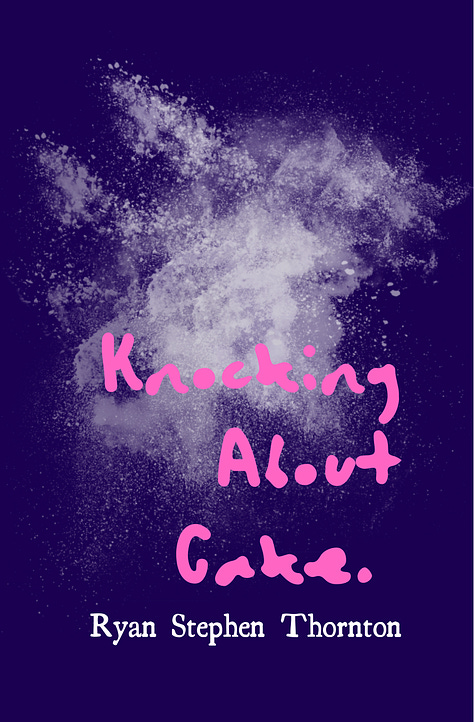
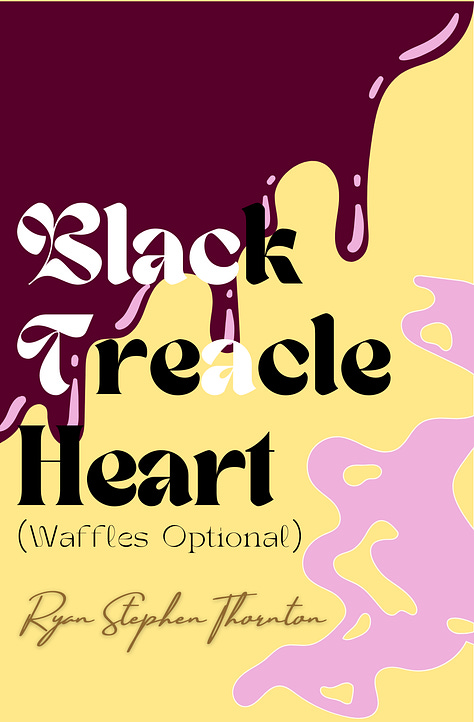
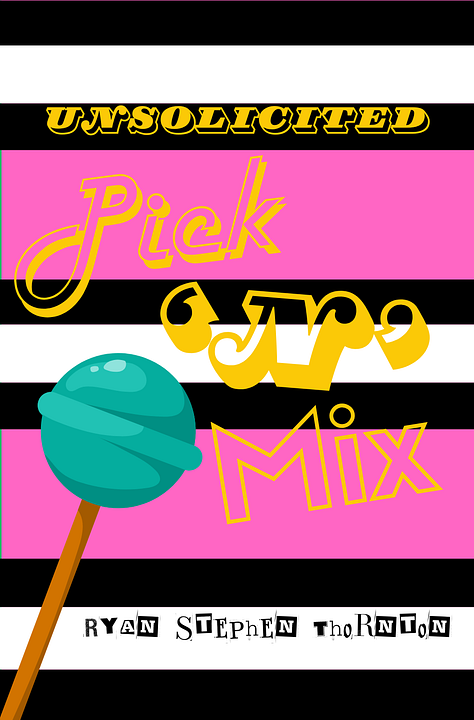
The Lineage of Self-Made Work
Listen. The poet’s bloodline isn’t straight.
It’s a tangled queer mess of ink, nerve, caffeine, and pure uncut audacity.
We come from a long, chaotic, and slightly unhinged lineage of people who did not wait politely for the nod of approval. No. They cracked their knuckles, licked the nib, and did it themselves.
Walt Whitman? That bushy old bard, the grandaddy, the kinky saucepot nudist, didn’t just write Leaves of Grass—he designed it, typeset it, funded it, and then—get this—reviewed it himself anonymously. He literally catfished the literary world into taking him seriously. Icon.
T.S. Eliot? Paid to publish his first book. Margaret Atwood? Hand-printed Double Persephone. Edgar Allan Poe? Printed Tamerlane and Other Poems himself in 1827—so niche that only fifty copies existed and half of them were probably used to prop up table legs.
Elizabeth Barrett Browning. Alexander Pope. Percy Bysshe Shelley. All of them: self-funded, self-believed, self-unhinged. The original indie kids. Probably would’ve had Etsy shops if they’d had the internet.
And then you’ve got E.E. Cummings—rejected by thirteen publishers, so he self-published No Thanks and dedicated the book to those thirteen bastards by name. Petty king behaviour. We love to see it.
Oscar Wilde footed the bill for his first poetry collection. Lawrence Ferlinghetti? Printed Pictures of the Gone World himself. Ginsberg? Mimeographed and hand-stapled Siesta in Xbalba like a literary pirate, and now a copy sells for £22,500 at auction. (So maybe don’t throw out your printer ink just yet.)
William Carlos Williams self-published too. Because he was busy being a doctor and an experimental poet and a chaos demon with a printing press. Rupi Kaur self-published milk and honey and went from Instagram captions to international bestsellerdom faster than you can say “trauma in lowercase with beige doodles”
This isn’t some niche rebellion.
This is the canon—built not with ivory towers, but with sheer bloody-mindedness, debt, glitter, glue sticks, and the burning need to be read.
Virginia Woolf said “fuck this” and printed Kew Gardens on her dining table before launching the Hogarth Press. Marcel Proust paid to print the first few volumes of In Search of Lost Time at the age of forty-two, after being rejected for being too weird, too long, and too French. (Which—yes.)
Even Ulysses, that unkillable beast of modernist literature, was self-published in Paris by Sylvia Beach at the original Shakespeare & Company, the patron saint of queer bookstores. No one in the English-speaking world would touch it. Now it’s the curse of every English lit syllabus and used to prop up the egos of tall, thin, moody men in turtlenecks & berets.
Paul Laurence Dunbar printed Oak and Ivy with borrowed money and sold it to passengers in the lift he operated. That’s hustle. William Blake printed, painted, and engraved his own books with absolutely no chill and even less regard for linear time. Legend.
Kerouac typed On the Road on one long scroll like a man possessed and got rejected everywhere. Ginsberg got told Howl was obscene, Ferlinghetti published it anyway and ended up in court defending it.
These are not side stories. These are the main characters of literary history.
They didn’t wait to be discovered. They discovered themselves.
They didn’t walk the road. They built it. Out of unpaid invoices, spite, and metaphorical duct tape.
These were the books no one wanted. The poems that made editors sweat. The manuscripts that were too loud, too weird, too horny, too long, too something.
And now? They’re the texts that changed everything.
As Alan Turing said—and this applies to poets too—
“It is the people who no one imagines anything of who do the things no one can imagine.”
So if you’re waiting for someone to imagine something of you—don’t.
Be unimagined. Be the glitch.
Be the poet who prints it anyway.
We don’t self-publish because we’ve failed.
We self-publish because the canon is a living thing.
And we have always been its parasites, prophets, pranksters, and pulse.
Call it self-publishing if you want.
I call it ancestral continuation.
The same old fever dream: to be seen. To be read. To put something strange and beautiful into the world that wasn’t there before—and hope someone out there needs it like (salt-rimmed) breath.
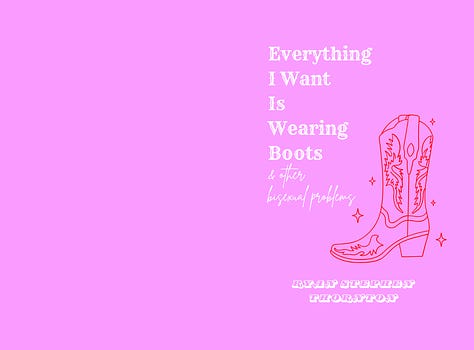
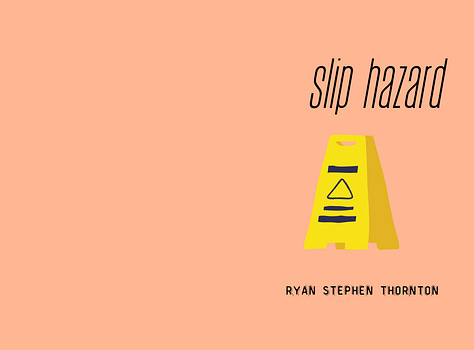
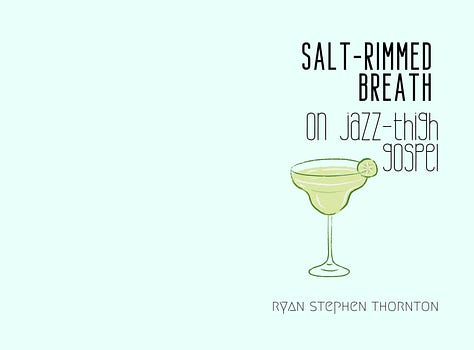
Choosing the Fire
When I chose to self-publish, it was not because I couldn’t wait—it was because I refused to disappear. I had a book that was urgent, queer, tender, absurd, and I wanted it in the hands of readers who needed it. I wanted to control how it looked, how it landed, how it lived in the world.
It was one of the most liberating acts of my writing life.
But it was also exhausting. Expensive. Lonely. No fanfare. No publicity machine. And yet: it lives. It breathes. People are reading it. Some have written back to say it mattered.
That is the fire.
My book, Salt-Rimmed Breath on Jazz-Thigh Gospel, was not meant to wait in a Dropbox folder for another year. It was born of long nights and longer silences. Of unspoken touch, unsent messages, unclaimed hunger. It is a body of poems about bodies—mine, others', imagined, remembered, desired. A very, very queer book. A gospel of unrepentant longing.
I knew from the beginning that it wouldn’t slot easily into many publishers' lists. It wasn't polite enough. It was too much and not enough all at once. But it was mine. And so I made it real. I formatted it by hand. I designed the cover. I worked out how to bundle it with postcards and secret ephemera. I called it an object of desire and made it one.
Before I ever wrote a single line of Salt-Rimmed Breath on Jazz-Thigh Gospel, I had already sent three other collections into the void. The first was Knocking About Cake, a tender and often nostalgic excavation of lineage, ancestry, and family—rooted in the warm comforts and burnt edges of home. It included my recipe for Yorkshire puddings mid-poem. The second, Black Treacle Heart, was a sticky, saccharine collection of food metaphors and lust-drenched language, wrung from nearly a decade spent working as a chef. The third, Unsolicited Pick N Mix, was a rebellious compilation of the risqué, the unfitting, the cast-offs I loved but felt unsure would ever be accepted in the buttoned-up world of contemporary poetry publishing.
Each book held a part of me. But none held the whole. And when the rejections came, I realised something more painful: I had left the poems I loved most on the cutting room floor, trying to make myself palatable.
So I made a different decision. I began writing not with a publisher in mind, but with a reader: myself. I asked what I hadn’t seen enough of in the books I was reading. What bodies, what voices, what places, what hungers? What poems lived in the margins and footnotes, or had never made it past the editing floor? As a queer historian, I was tired of erasure. Restless. So I began compiling a list of all the poems I wanted to exist, and I chased them down like a dog.
Six weeks later, I had the beginnings of the collection that would become Salt-Rimmed Breath on Jazz-Thigh Gospel. Originally titled Everything I Want is Wearing Boots, it started as a journey toward self-love—a love story told through the bodies I wanted to love and become, culminating in a poem where I become the very object of desire. That arc still shapes the collection.
The poem that became its core—Thigh-High Chub-Rub Summer—was a gospel in five parts, a call to joyously inhabit every body the world has tried to shame. From there, I built sections: "Becoming," "Body Electric," "Strokin' Heat," "Mythopoetic Sunbeasts," and "After Light"—each one a different layer in the becoming of the self.
I knew from the beginning: no publisher would take it. And equally: no publisher could. That was the point. That was the book's reason for being. When I finally wrote the poem salt-rimmed breath on jazz-thigh gospel, I knew the book had found its name. It is, essentially, a hyper-poetic erotic rendering of two lovers sharing margaritas before sharing their bodies—a poem nobody, absolutely nobody, was going to print. And so I did.
The book owes its cadence to Kerouac's jazz-soaked stream-of-consciousness bebop prosody, Gertrude Stein's queer & eclectic repetitions, a neon jungle of splintered fuck-thoughtless ultra-poetic prose, as a guide to a lover's body. Very Roland Barthes of me, I know. Intentionally so. Also, if you've ever read Tarantula by Bob Dylan, that's in there too. And so, the book was born. And now I have no idea what to do with the other three collections that came before it.
It is an ultra-poetic sex-spell, a velvet-mouthed scream, a mirror and a queer, chubby, hymn book. And it happened fast. Six weeks. From poem to print. I don't recommend that timescale to anyone. I was unemployed, restless, and in a manic state of ego-driven immediate self-realisation, desperately in need of some instant gratification. It's also probably quite fair to say, from reading the book, I was just in need of a good shag. But that's by the by. Sometimes you dick down, and other times you write a book. Ask Frank O'Hara. Sex and self-publishing. Both chaotic acts of joy. Both ways of saying: I am here.
And when it finally landed—when I held the first copy in my hands, spine warm from the press, pages breathing with risk—I felt something crack open. People posted photos. People messaged me. That was the moment I knew: it had worked. Not because it was perfect. But because it was alive. Because it had been needed.
And in doing so, I remembered why I write at all.
Not for praise. Not for approval. But because there is something in me that needs to be named. And shared. And held. And maybe, just maybe, other people out there need a little more of that too.
Also, on the theme of audacity, don’t just imagine the book out there, build an entire world around it. Design a poetry competition. Curate a playlist. Conjure a signature cocktail. Knock-up your own limited edition merch.
Don’t believe me?
See? Audacity.
On Community
Poets don’t survive alone. Never have. We are not lone wolves—we are raccoons in velvet smoking jackets, rifling through the bins of each other’s brilliance. We survive in packs. Gangs. Covens. Discord servers. Feral little group chats at 2am titled “Poem Sluts + Snacks.”
The Beats? They didn’t just turn up one day fully formed in bookstores. They blurbed each other, published each other, got high and read aloud to each other in apartments full of cigarette smoke and stolen furniture.
The Romantics? Forest gays. Campfire mutuals. Handing each other freshly wept-on notebooks and saying, “Look, I saw a daffodil and thought of you.”
The Harlem Renaissance? Nobody gave them a stage—they built one from scratch, hammered together with rhythm and resistance and gossip and groove. That’s how it’s always worked.
Now it’s DMs, linktrees, tip jars, Substack shout-outs, and “please share if you vibed with this.” But the pulse is the same.
Poets are not solo acts howling into the void. These are ecosystem-builders. Cross-pollinators. Gospel sharers. Poem-preachers who repost your link, read your book, and put your name in someone else’s mouth at the exact moment you think no one is listening. And on Substack, they’re everywhere, and I love you all.
They’re not asking to be invited in. They’re redecorating the house.
They’re passing the mic. They’re making chapbooks in their kitchens and mailing them out with stickers and spells.
And every time you do the same—buy a chapbook, share a post, leave a weird little comment that says “this made my teeth ache in a good way”—you are stoking the fire. You are throwing more queer wood on the ancient poet bonfire. You are keeping the lineage alive.
We don’t do this alone. We never have.
We do this with glitter and glue sticks and inboxes full of mutual admiration and unhinged voice notes. It’s not a career ladder. It’s a feral conga line.
And everyone’s invited.
A Difficult Truth
Now—let’s be honest. Self-publishing isn’t all prophetic fire and disco ball sermons.
Sometimes it’s beige. Beige as fuck.
For every electric, soul-haunting, feral little miracle of a book, there are a hundred soulless heartbreak haikus printed in Comic Sans with a Canva cover that looks like a funeral PowerPoint. There is a lot of algorithm-bait nonsense out there. Four-line poems about boys named Jake who ghosted you after Coachella. Stick-figure sadness wrapped in stock photo roses and sold for £12.99 with a motivational quote on the back.
Sometimes it feels like art is drowning in beige. Beige heartbreak. Beige inspiration. Beige empowerment.
And yet… I can’t bring myself to hate it. (And I really, really, really fucking want to.)
Because I don’t believe in crowns. I don’t believe in gatekeeping.
I believe in glitter. I believe in chaos. I believe in trying.
Just because everyone can self-publish doesn’t mean everyone should. But honestly? I’d rather live in that unruly jungle of weird and wonderful attempts than go back to a world where six people in London or New York decide what poems are allowed to exist.
I have read chapbooks that changed me. Tiny things. Self-published. No fanfare. No PR team. Just stapled pages full of strange magic and one person's weird little truth that clung to me for weeks.
Because the thing is: the canon doesn’t get to decide what matters.
The reader does. The work does. The moment does.
The person who picks it up on the worst day of their life and says, “Oh. Someone else gets it.” That’s the measure.
Self-publishing is messy, yes. But it’s also democracy by hot glue gun.
It’s a punk open mic with ghosts in the back row. It’s a bookshelf where the gate is left ajar and the poltergeists are running the library. It’s weird, and wonderful, and yeah, a bit chaotic. But so is poetry. So are we.
Let the mess in. Let the bad books happen. Let the great ones sneak past you in disguise. Let everyone have a crack at it.
Because somewhere in that avalanche of mediocrity is a gem that will rearrange your insides. And I’d rather risk the beige than miss the magic.
The Call to Read Differently
This is why, ahead of the Sealey Challenge, I’m not just asking you to read—I’m asking you to read deliberately. Read with intent. Read with curiosity. Read like you’re on a mission to find the voice that doesn’t show up on prize lists or in bookstore windows but lives exactly where you needed it.
Seek out the small presses. The self-published. The kitchen-table manifestos. The badly formatted PDFs with a soul. The poets who didn’t wait for the literary-industrial complex to throw them a bone—they became the machine. Or at least duct-taped a typewriter to a toaster and made it work.
Read Savannah Brown’s Graffiti, born of a 20-year-old’s refusal to wait and her total refusal to tone it down. Read Isabelle Correa’s wild and sensual sex is from mars but I love you from venus—a glorious, glitter-lipped scream of astrological delight and disaster. Read Prudence Brooks’ Truce, Sonja Ringo’s Where the Beetle Went for Lunch, Maia Brown-Jackson’s And My Blood Sang—each one a whole, unique universe built from voice memos, kitchen confessions, and literary witchcraft.
And of course, please, please, please share your own in the comments below.
And while you’re at it—read mine!
Read Salt-Rimmed Breath on Jazz-Thigh Gospel, a book that could only exist because I refused to shut up. It’s a horny, holy, unpublishable beast of a thing. A book built from sweat, glitter, mythology, longing, lube, lipstick, and rage. It was written because I couldn’t not write it. Because no one else was going to make a gospel for the chubby bisexuals who cry during karaoke and believe in poetry as birthright.
It was never going to be picked up by a big publisher. It wasn’t tidy. It wasn’t tasteful. It was far too obsessed with boots and bodies and thigh friction and the mythic potential of sex as resurrection. So I published it myself. Because it mattered. Because I wanted to read it. Because I wanted it to exist—in all its queer, maximalist, unhinged, jazz-beat glory.
These books weren’t shaped by market trends. They weren’t born from sales strategies or editorial algorithms. They were written and released because the poet could not help it. Because poetry is not a brand. It is a haunting. A calling. A compulsion. A full-body YES from somewhere you can’t quite name.
Read deliberately. Read ferociously.
Read like you’re building a canon from scratch.
Because maybe... you are.
The Real Work
If you are a poet—then write.
Stop waiting. Stop refreshing your inbox waiting for a yes or a no. Stop tying your worth to whether someone with a lanyard thinks your line breaks are marketable.
Make the book. Print the chapbook. Post the damn PDF. Bind the zine with glitter glue and sheer nerve. Upload the file. Whisper it into Substack. Yell it across Instagram. Scribble it in the margins of receipts and drop them into strangers’ tote bags. Sell it. Gift it. Swap it for wine and compliments. Make it real. Make it weird. Make it yours.
You don’t need to be chosen. You just need to choose yourself, loudly and repeatedly, until it becomes muscle memory.
And if you are a reader—then read wildly. Read beyond the prize lists and “best of” newsletters. Read what someone made at 3am while crying into their unbuttered toast. Read the books that smell like printers and panic. Read the poems that were never supposed to see daylight and feel like secrets being passed under a table. Read the poets who whispered their own names into the archive because no one else was going to carve it there for them.
This. Is. The. Work.
This is the fire. This is the moment.
No more waiting. No more permission slips. No more asking “is this good enough?”
If it’s yours, it’s enough.
As Kerouac said: “There’s no time for poetry. But what is?”
What could possibly be more urgent than writing what only you can write?
What could be more radical than reading what would otherwise go unheard?
So go.
Write the thing. Make the thing. Share the thing. Scream the thing. Print the thing. Glue the thing. Slam the thing. Email the thing to your ex if it helps. Read the thing. Live the thing. Be the thing.
Because your voice is already enough. Because the canon isn’t finished—it’s still wet clay. Because we’re all still carving. Still scribbling. Still screaming ourselves into existence. Because poetry has never belonged to the gatekeepers. It belongs to the ghosts. To the rebels. To the dreamers. To the horny, the hopeful, the haunted. To the weirdos with glue under their fingernails and glitter in their grief. To the ones who loved language too much to let it rot behind a paywall.
And it always will. We are still writing it.
And now—so are you.
RST xo
P.S. if you want someone to review your work, all you have to do is ask. 👀 below is a snippet from the full (five page) review of Maia Brown-Jackson’s upcoming collection, Gifted, that will inevitably be posted to implore you to read the full book yourselves when it is released.
P.P.S. maybe I should offer my services to help y’all curate, design, edit, and publish your collections… just a thought… for now 👀 what a thought! A Poet Chaotique publishing press? hmmm….










You are always right on the money and the money is spewing! I’ve waffled on the idea of traditional vs self publishing and you have violently tore my misgivings on self publishing to shreds! Bravo! I have a friend who is a published (traditional and self) poet, taught poetry at a college and is widely known and prolific within spokane’s poetry community and he also strongly recommends self publishing for many of the same reasons you mention here.
With the preponderance of AI generated content, algorithms, Jeff Bezos’ shriveled manhood hijacking real bookstores, and the over saturation of industry plugs in our writing world, the need for authentic writing is stronger and stronger (and maybe a little desperate)
this ignited something in me that i didn't even know had burnt out.